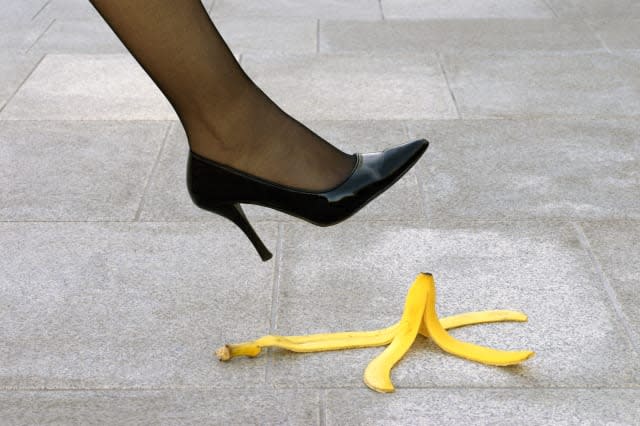The four stupid mistakes that increase our risk of online fraud

Given that one in ten of us have fallen prey to online fraudsters in the past year alone, you would be forgiven for thinking that it might make us more aware of the risks, and take steps to protect ourselves. Unfortunately, the rise in bank and credit account fraud is an alarming sign that we are still doing the wrong things - over and over again.
We reveal the four daft mistakes we're most likely to make.
1. Choosing a very silly password
The risk is that in picking something that's easy to remember, we choose something that's easy to guess. Our pet's name, mother's maiden name, or the birthday of our oldest child are the kinds of things we might, for example, accidentally reveal on social media, and put ourselves at risk.
But when we say 'very silly' we don't just mean this kind of thing. When lists of the most commonly cracked passwords are published, inevitably '12345678' and 'password' will be at the top. It perhaps doesn't go without saying that these are terrible password choices.
Experts at Charter Savings Bank recommend picking a phrase, such as I love peanut butter sandwiches more than chocolate. Then take the first letter of each word (ILPBSMTC). Finally, switch letters for numbers that look the same, such as 1LPB5MTC. You could punch letters into a password screen for weeks and not stumble across something like that.
2. Giving people our details
Nobody needs to know your password or PIN. Surely there will come a time when we have all read enough reports of family members and carers using this information to empty an account to know it's unwise.
Charter Savings Bank highlights that criminals may also try to trick you into revealing this information, with a call or email out of the blue, where they ask you to confirm your details. They say: "If someone calls you, ask for a number to ring them back on and check with your provider to make sure the number is legitimate." In addition, if you get an email asking you to input your details: "This should always raise a red flag: banks are extremely unlikely to ask you to update any information by email."
3. Using internet banking on the go
Internet baking on your phone feels like a brilliant way to help you stay on top of your money while you're out and about. However, you need to think about security too. Charter Savings Bank says: "Never use free public Wi-Fi for banking. Whilst it may seem convenient, it is unlikely to be secure and there may be people monitoring the information being transferred."
When you set up internet banking, it also makes sense to have a nominated account. This is usually your current account. It ensures that money can only ever go into your account from the nominated account, and money can only ever be paid out to it too. It means that if somehow criminals could access your savings account, the only place they could transfer money to would be your nominated account.
4. Assuming nobody would bother trying to steal our cash
It's easy to assume there's safety in numbers, and that there's no reason why anyone should target you in particular. However, criminals cast the net wide, and with one in ten people targeted every year, you need to assume you'll be next.
You need to stay alert to a potential threat, and the best way to do this is ensure you have IT security under control. A personal firewall protects your computer and private network from malicious software or malware - which can install spying software to watch when you next access internet banking.





